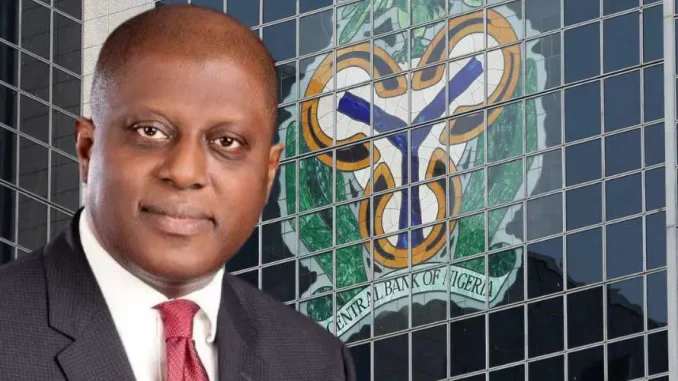
The introduction of three bills in the Senate to amend the Central Bank of Nigeria (CBN) Act has sparked controversy.
The apex bank has expressed concerns about the proposed changes in the bill, but sources said the bills aim to make the CBN more efficient and ensure collaboration between the bank and the Ministry of Finance in implementing fiscal policies.
This comes after a period during the tenure of former CBN Governor Godwin Emefiele when the then minister of finance Zainab Ahmed was reportedly unaware of the CBN’s actions regarding some fiscal policies.
Proponents of the bill argue that it will address issues of monetary policy being implemented without consideration for fiscal policy and that the CBN and Ministry of Finance must work together in certain areas while still retaining their powers.
However, opponents of the bill are spreading false narratives that the Ministry of Finance would take over the CBN’s powers and that the independence of the Monetary Policy Committee (MPC) would be compromised.
LEADERSHIP reports that the Senate Committee on Banking, Insurance and Other Financial Institutions has postponed a planned public hearing to allow for further consultations with key stakeholders due to misconceptions surrounding the bills.
Experts have clarified that the bill proposes a coordinating committee to align fiscal and monetary policies but does not aim to usurp the MPC’s roles or weaken the CBN’s independence.
“The CBN will maintain its monetary policy powers, while the Ministry of Finance will be aware of its actions,” a source said, adding that people opposed to the amendment are selling false narratives that CBN powers would be taken by the Ministry of Finance.
LEADERSHIP reports that during the tenure of Emefiele, Ahmed didn’t know what the CBN was doing regarding fiscal policy.
At an interactive session, Ahmed told a Senate Committee that when she was asked about her knowledge of the printing and circulation of the new naira notes, she said she was not aware, to the lawmakers’ amazement.
“If CBN is doing something, the finance ministry should be aware. In the current amendment bills, the CBN retains its MPC powers.
“If you address the monetary issues without the fiscal aspects, it’s a problem. The new bills want the CBN and the Ministry of Finance to work together, but the CBN retains its power in the MPC. If CBN is doing something, even if the ministry of finance is not going to be a part of it, the ministry should be aware,” a source knowledgeable about the bills said.
He said some people are just raising unnecessary alarms because of certain interests that may not help the country.
“These bills are for the interest of Nigeria. The current CBN governor and the minister of finance know each other and work together.
“Let’s say tomorrow the minister of finance and the CBN governor don’t know each other, and there is no law bringing them together on issues of national importance. There will be a problem.
“We don’t want what happened during Godwin Emefiele and Zainab Ahmed to repeat itself. The CBN and the Ministry of Finance must work together in certain areas while still retaining their powers,” another source said.
On February 22, 2024, the Senate confirmed Olayemi Cardoso, the governor of the Central Bank of Nigeria (CBN), as the chairman of the Monetary Policy Committee (MPC).
The Senate also confirmed the appointment of four deputy governors of the CBN and seven others as members of the MPC.
Sources who spoke to LEADERSHIP said such power has been retained in the proposed amendment bill.
One of the sources said in the past, different CBN governors have been carrying out policies without involving the Ministry of Finance, which should know more about the fiscal aspects of the economy.
A report had alleged that a bill, titled, “A bill for an Act to Amend the Central Bank of Nigeria Act No. 7 of 2007,” would allow the transfer of CBN’s authority to set interest rates to a newly proposed Coordinating Committee for Monetary and Fiscal Policies, which will be headed by the Minister of Finance.
However, speaking to LEADERSHIP, Mukhail Adetokunbo Abiru, chairman of the Senate Committee on Banking, Insurance, and Other Financial Institutions, said the report was misleading and untrue.
“You don’t spread falsehood without confirming from the bill. There are three bills. They propose that the CBN governor should not participate in politics. It is not in the bill that we sponsored,” a source said, adding that the section of the bill that talks about the power of the MPC still retains such with the CBN. All those provisions are still intact,” he said.
“CBN will maintain the monetary policy, and then the Ministry of Finance will also be aware of what the CBN is doing. We have to make it a law so that they don’t operate through personal friendship as we are having it today, another source told LEADERSHIP.
Also, Prof Uche Uwaleke, the special adviser to the chairman of the Senate Committee on Banking, Insurance and other Financial Institutions, said reports suggesting MPC powers have been transferred to the Ministry of Finance are untrue.
“The fact is that the amendment Bill proposes a coordinating committee as an institutional framework for the proper alignment of fiscal and monetary policies.
“The committee is expected to meet periodically to share information and identify and discuss resolution options to cross-cut macroeconomic challenges.
“So, its aim is neither to usurp the roles of the Monetary Policy Committee of the bank nor weaken the instrument independence of the CBN.
“To avoid doubt, section 12 of the current Act establishes the Monetary Policy Committee and stipulates its functions and composition. These provisions are all retained in the amendment Bill,” Uwaleke said.
Uwaleke told LEADERSHIP that because of the misconception the MPC issue has generated, the Senate Committee on Banking, Insurance and Other Financial Institutions has postponed the planned public hearing to allow for further consultations with key stakeholders.
Leave a Reply